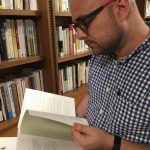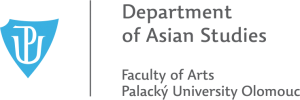International call for scholars and university teachers to apply, published on the Korean Studies List and subsequently distributed via various social media and homepages. This generated more than a dozen applications by very qualified colleagues from all over the world.
Legacies and heritage: Aspects of premodern and modernizing Korea and their lasting (or imagined) relevance for today’s Korean society The Korean section program of the Department of Asian Studies at Palacky University Olomouc, Czech Republic, is organizing a lecture series (“carousel lecture”) in the summer semester of 2018. Altogether seven different experts in Korea-related humanities, cultural studies, or cultural anthropology shall present research-based teaching and inquire into special aspects of premodern and modernizing Korea.
The overarching title is deliberately open. While the subject area is defined broadly, we would like to narrow down the scope in terms of teaching approach. The idea is to bridge the needs of undergraduate students on the one side and the intrinsic ambitiousness of university education on the other by drawing on research-based teaching. The lecturers will be obliged to communicate the general and current relevance of their specific research to an audience of students of Korean studies or Asian studies or other majors, while covering all relevant contexts, thus imparting basic background knowledge.
We hope that this international call will allow us to choose from among many interesting proposals by enthusiastic scholars and university teachers who feel attracted by the concept. Deadline for proposals is February 12. Proposals should contain: an abstract of 300 words, a CV, and a publication list. Send your proposal (all attachments in PDF format please) to andreas.schirmer@upol.cz and cc to martin.sturdik@upol.cz Our main concern is that the teachers perform research-based teaching. They are supposed to present not simply another encyclopedic version of well-known, run-of-the-mill elementary topics, as often happens in conventional introductory general lectures (e.g., the classical evergreen, an overview on Korean shamanism). Instead, these lectures should offer useful general and introductory knowledge on Korea in a calculated en passant fashion, akin to how a good novel might teach you the basics of a historical period’s conflicts just by the way — while you are engrossed in a story of love and revenge. In other words, the lecture shall present a very special case and roll up the bigger general issues that are behind.
In addition, the teachers are supposed to deliver, within two weeks after their lecture, an essay summarizing the content of their lecture (3000 to 4000 words), outlining the main points in a rather lighthearted way. Ideally, this will allow you to disclose some observations and speculations as work in progress. (Sources shall nevertheless be appropriately named, and a carefully selected short reading list shall be attached.) As for style and format, more detailed instructions will be sent to the selected teachers. All essays will be published online as an open access resource on our homepage. We have set aside a small budget for copy-editing, taking into account the natural handicaps of non-native speakers of English when it comes to sophisticated writing.
The lectures and essays are supposed to form a centerpiece of a “Seed Program for Korean Studies” project for which Palacky University Olomouc has received a grant from the Korean Studies Promotion Service (Academy of Korean Studies). Project director is Andreas Schirmer.
Practical matters:
Time/Dates:
The lectures take place at a fixed time (on Fridays from 9:45 to 13:00; actual teaching time 180 minutes) every other week of the semester.
Dates are:
- Feb 23,
- March 9,
- March 23,
- April 6,
- April 20,
- May 4,
- May 18.
Money:
A) Travel costs: We can cover travel costs (flight or/and train; no additional costs) within our budget, 400 Euros on average. In order to guarantee a fair distribution, we will not evenly distribute 400 Euros but will ask for your foreseeable costs (based on early standard booking) and will, in case of your selection, commit to paying this amount. On arrival, you receive this amount in cash or we will proceed with a transaction to your account (your choice, but bank fees will be on you).
B) Accommodation: We will arrange accommodation for you and cover the costs, but will ask you, for organizational reasons, to pay yourself in your name. You will be given that exact amount together with the travel costs (see above).
C) Honorarium: The honorarium is 500 Euro. It will only be paid after delivery of the said essay, because we rely on a “lasting” output for our grant donors.
Other details: This class will be fully independent but shall take place alternating with another biweekly lecture on the same time in non-carousel-lecture weeks. This alternation makes sense for the schedules of students of Korean studies, so that this specific time window will be filled every week. From an administrative point of view, every lecturer will actually hold two lecture units (90 + 90 minutes, with a break in between), guaranteeing in total the equivalent to one regular lecture (a 90-minute lecture, taking place once a week). Students take an exam at the end. Exam and assessment are done by the project director. The carousel lecture does not require registration and will of course also be open to the general public, in compliance with university laws.

